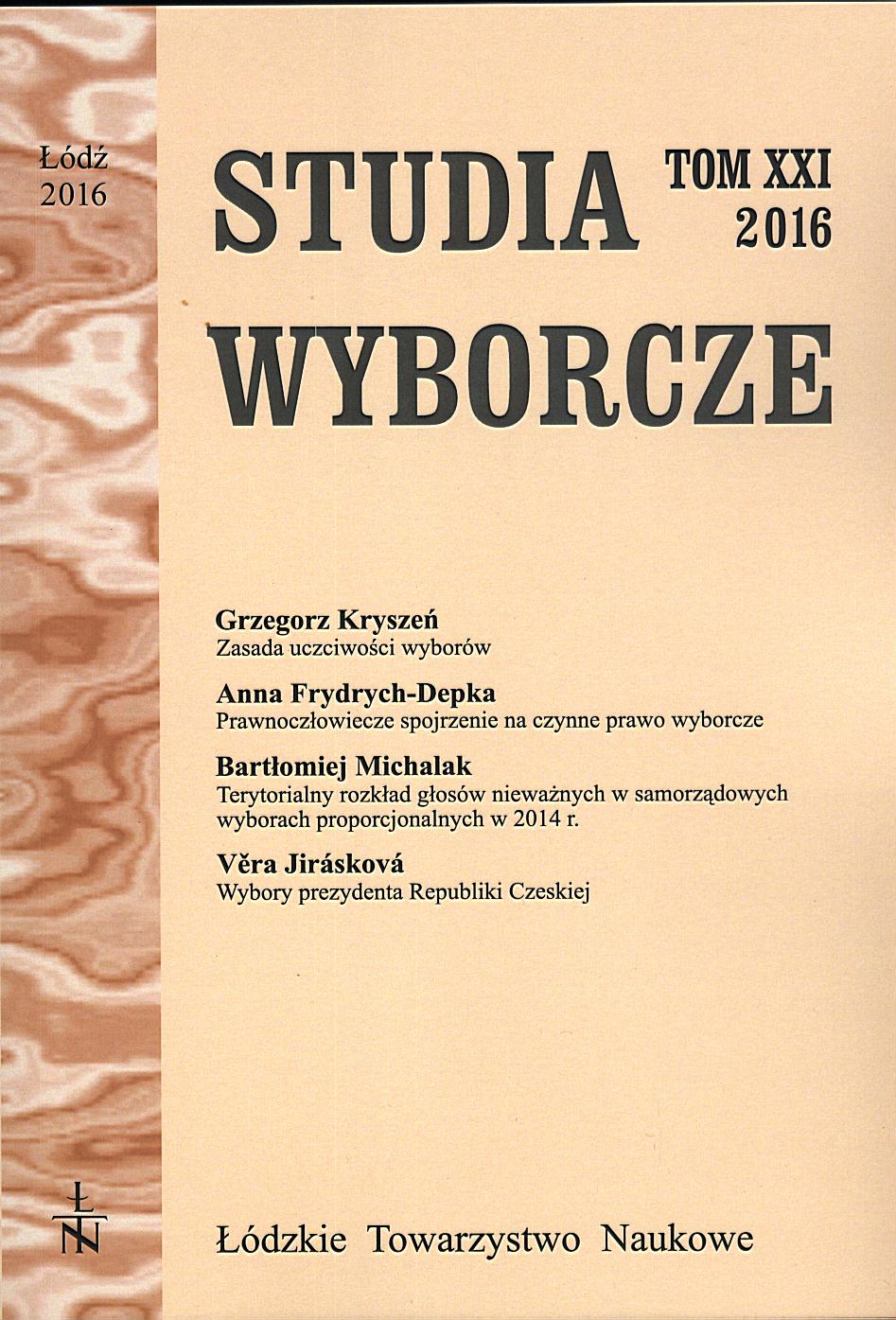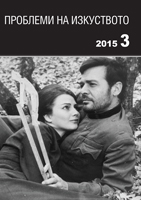
We kindly inform you that, as long as the subject affiliation of our 300.000+ articles is in progress, you might get unsufficient or no results on your third level or second level search. In this case, please broaden your search criteria.

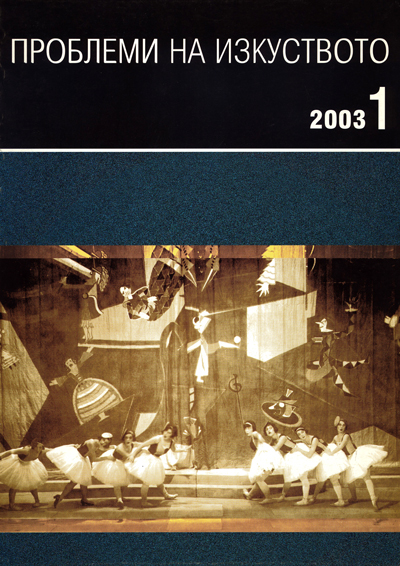




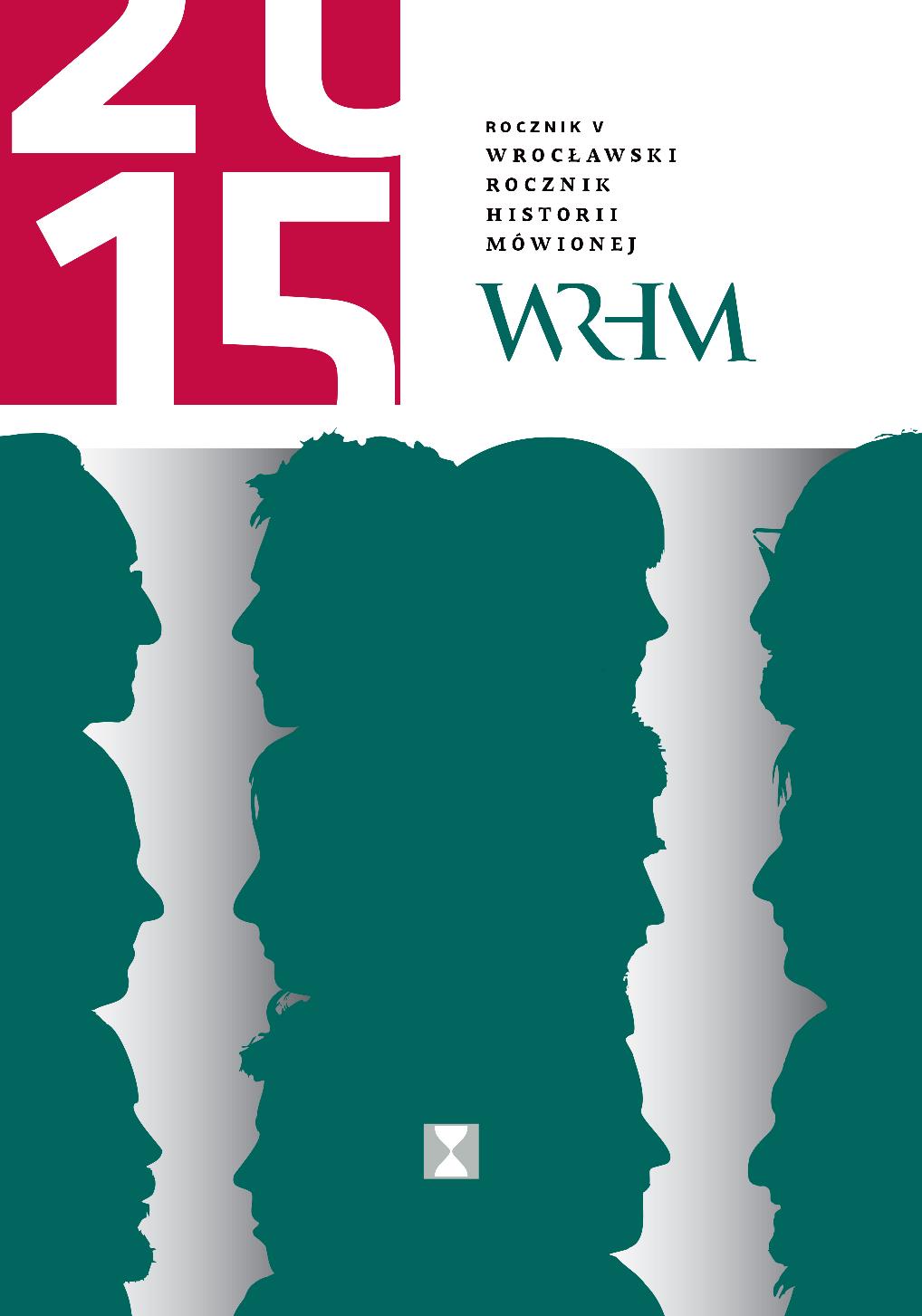
![Recenzje i omówienia: Tekst ciała, ciało tekstu [dot. A. Dziadek: „Projekt krytyki somatycznej”]](/api/image/getissuecoverimage?id=picture_2015_26408.jpg)
A review of Adam Dziadek’s „Projekt krytyki somatycznej” (2014) [„Plan for a Somatic Criricism”]. The author emphasises originality of Dziadek’s conception, which combines certain structuralist and poststructuralist elements. As a result, Dziadek describes the text of a body: its manifestations or traces in the matter of language (above all, rhythm); at the same time he is interested in the body of a text: a mechanism of reading which transcends the aesthetic norm.
More...![Recenzje i omówienia: „Poezja metafizycznych pytań” [dot. M. Flakowicz-Szczyrba: „Dowód na istnienie. Poezja Julii Hartwig wobec egzystencji i sztuki”]](/api/image/getissuecoverimage?id=picture_2015_26408.jpg)
The review offers a presentation of Marta Flakowicz-Szczyrba’s book “Dowód na istnienie. Poezja Julii Hartwig wobec egzystencji i sztuki” [“A Proof of Existence. Julia Hartwig’s Poetry on Existence and Art”], where the lyric oeuvre of the famous poet is placed within the „poetry of metaphysical question.” A particular attention is given to a hermeneutic way of reading the works of the author of “Zobaczone” [“Seen”] and to the use of such categories as epiphany, empathy, ekphrasis, apocatastasis in the course of the analysis.
More...![Recenzje i omówienia: Po stronie życia, przeciw melancholii [dot. M. Bieńczyk: “Jabłko Olgi, stopy Dawida”]](/api/image/getissuecoverimage?id=picture_2015_26408.jpg)
The subject of Wojciech Rusinek’s review is Marek Bieńczyk’s collection of essays “Jabłko Olgi, stopy Dawida” [“Olga’s Apple, David’s Feet”]. The author begins his reading of the book by placing it in the context of Bieńczyk’s earlier achievements: both artistic (novels, literary essays) and academic (bearing witness to his studies on Romanticism). While noting that Bieńczyk’s essays are governed by a wealth and a surprising variety of the explored themes, Rusinek emphasises, however, the worldview coherence of the volume. According to the author of the review, a key to the interpretation of all the essays in the book is “the praise of the taste of life,” which makes a new tone in Bieńczyk’s writing, so far associated mainly with the reflection on melancholy and melancholy discourse present in his artistic prose. In the following part of the review, by outlining the content of the essays devoted to Proust’s and Nerval’s prose, Hopper’s painting or Sempé’s drawings, Rusinek analyses the anthropological figures around which Bieńczyk’s digressive and slow reflection revolves: gesture, light, escape, frozen time. The reading of Bieńczyk’s work becomes enriched with an analysis of style (a role of stylization). Moreover, the review points out those fragments of “Jabłko Olgi, stopy Dawida” where a description of artistic works becomes smoothly linked with the elements of the author’s biography. In the conclusion of the reflection upon Bieńczyk’s essays, the author states that the essays clearly lean towards poetics of epiphany, which, in the view of the author of “Jabłko Olgi…”, would mean an unclear, veiled by an infinite number of borrowings, allegories, allusions and stylizations, suspending the flow of time, experience of existence in its inexpressible fullness.
More...![Recenzje i omówienia: Nie takie „Wieloryby i ćmy” straszne (jak je malują) [dot. S. Twardoch: „Wieloryby i ćmy”]](/api/image/getissuecoverimage?id=picture_2015_26408.jpg)
The author of the article, inspired by Dariusz Nowacki’s review, proposes a thesis opposite to that of the famous critic, who calls Szczepan Twardoch’s and Jacek Dehnel’s diaries “a show-off of avatars.” In defence of Twardoch’s book, “Wieloryby i ćmy” [“Whales and moths”] the author decides to concentrate on its ideological and literary values. Most importantly, he strives to prove that the diaries constitute an original and innovative attempt at developing a genre of intimate diaries and have a multifaceted interpretive potential. The author of “Morfina” [“Morphine”] expresses in his diaries a desire for “directing a great life,” understood as a consistent creation of literary works as well as a life imitating literature. The analyses and commentaries included in the article focus on the oppositions and hypostases found in the text, for example, of the world and provincial, history and life, literature and nothingness, settlement and foreignness, life and death, presence and absence, life according to spirit and life according to body, responsibility and its lack.
More...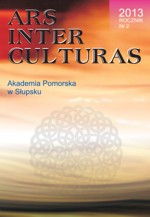
The author traces the establishment and the subsequent development of music pedagogyeducation in musical drama institutes and musical colleges in the early 20th centuryUkraine. In particular, the author evaluates the training system for music teachers, describes training institutions in the Ukraine, analyzes the curricula of teacher’s training departments of Kyiv, Kharkiv and Odessa musical drama institutes, and reviews the reorganization of the system of higher artistic education from the 1920’s to 1930’s. As a result of this reorganization,institutions offering majors in arts and music were divided into higher schools of music and art; institutes of music, drama and arts; comprehensive schools of music and art; and, colleges of music, drama and arts. The author reveals the goals set for the departments of early musical education in conservatories that were supposed to train highly qualified educators, specialists for different types of out-of-school activities (organization of concerts for hildren, management of musical work at children’s theatres and cinemas, organization of competitions etc.), and supervisors for teacher’s training at musical colleges.
More...
Changes in the 21st century place new demands on teachers of Aesthetic Education. Thequestion of preparation of primary and secondary school teachers’ is a sensitive one, especially from the point of view of selection and predisposition of applicants for this type of university education. This article summarises the findings of a three-year research into the preconditions, motivation and preparation of future teachers of Aesthetic Education.
More...
The article discusses the issue of the other that is widely manifested in literatureand cultural studies, however has little presence in the school practice. The implementation of cultural studies to school curricula can bring numerous benefits to teaching Polish language and literature. A broadly conceived interest in the otherness, the other and multiculturalism as seen in the literature can be reflected in humanistic education. Cultural and ethnic otherness cannot be treated stereotypically or as the great absent.To successfully address the problem, however, the Polish school has yet to open up for the issue of multi- and interculturalism.
More...
The author leads a team of Czech and Slovak experts on pre-school music education.The article discusses the importance of positive family environment surrounding a preschool child. It introduces the educational method, In our family, which is based on the integration of artistic skills and on the five human senses. It emphasizes the role of music in the healthy development of individual personality. The author introduces the teaching aid called The Children’s House and other publications related to it.
More...
This article discusses the role of piano as a didactic aid in early education. The piano is a great aid to motivate, sparks creativity, and effectively engages children in the learning proces. A case study conducted by the author proposes different techniques of integrating the piano in the context of music lessons. The study contains a variety of musical activities and proposes specific teaching instructions to work with rhymes.
More...
Changes in the 21st century place new demands on teachers of Aesthetic Education. Thequestion of preparation of primary and secondary school teachers’ is a sensitive one, especially from the point of view of selection and predisposition of applicants for this type of university education. This article summarises the findings of a three-year research into the preconditions, motivation and preparation of future teachers of Aesthetic Education.
More...